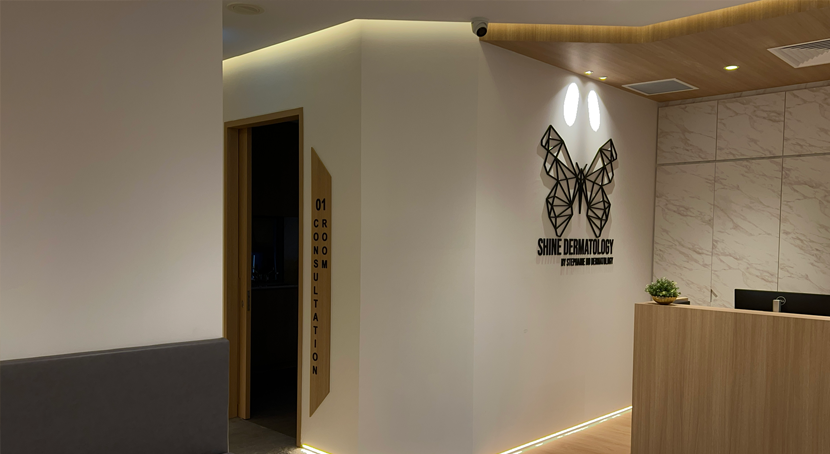What is Rosacea?
Rosacea is a chronic inflammatory skin condition that primarily affects the face. It typically presents as redness, dilated blood vessels, and, in some cases, small, pus-filled bumps. The condition often follows a pattern of flare-ups and remissions.
Rosacea affects people of all skin types, though it is more commonly observed in those with fair complexions. There are four main subtypes:
-
Erythematotelangiectatic Rosacea: Persistent facial redness and visible blood vessels.
-
Papulopustular Rosacea: Redness accompanied by acne-like breakouts.
-
Phymatous Rosacea: Thickened, bumpy skin, often on the nose.
-
Ocular Rosacea: Red, irritated eyes and eyelids.
Identifying the specific subtype is important for guiding appropriate treatment.
Common Symptoms of Rosacea
Rosacea symptoms can vary depending on the subtype and severity. Common signs include:
-
Facial Redness: Often concentrated on the cheeks, nose, chin, or forehead.
-
Visible Blood Vessels: Fine, red lines (telangiectasia) on the face.
-
Pimples and Bumps: Acne-like lesions, sometimes with pus.
-
Burning or Stinging Sensation: Especially during flare-ups.
-
Dry, Irritated Eyes: Common in ocular rosacea.
-
Thickened Skin: Especially on the nose (rhinophyma) in advanced cases.
Consult a dermatologist for a proper diagnosis and treatment plan if you experience these symptoms.
Causes and Risk Factors of Rosacea
The exact cause of rosacea remains unclear, but several contributing factors have been identified:
-
Genetic Predisposition: A family history of rosacea may increase susceptibility.
-
Immune System Response: Inflammatory reactions may play a role.
-
Environmental Factors: Sun exposure, wind, hot or cold weather.
-
Lifestyle Triggers: Spicy food, alcohol, caffeine, and emotional stress.
-
Demodex Mites: These skin-dwelling mites may be involved in some cases.
-
Vascular Abnormalities: Changes in facial blood vessels can contribute to redness.
At Shine Dermatologist Singapore, we perform a detailed assessment to identify your unique triggers and underlying factors.
Rosacea Treatment Options at Shine Dermatologist Singapore
While there is no permanent cure for rosacea, effective treatments are available to control symptoms and minimise flare-ups. Our clinic offers:
-
Topical Medications: Prescription creams and gels with metronidazole, azelaic acid, or ivermectin to reduce inflammation and redness.
-
Oral Medications: Antibiotics such as doxycycline for inflammatory types, and oral isotretinoin for severe or treatment-resistant cases.
-
Laser and Light Therapy: Pulsed dye laser (PDL) and intense pulsed light (IPL) treatments to reduce visible blood vessels and persistent redness.
-
Personalised Skincare Guidance: Recommendations for gentle, non-irritating skincare to maintain the skin barrier.
-
Lifestyle Modifications: Identifying and avoiding personal triggers like hot drinks, heat exposure, or emotional stress.
-
Ocular Rosacea Management: Lubricating eye drops or prescribed treatments to relieve eye discomfort.
We tailor each treatment plan based on the type and severity of your rosacea, your skin type, and your lifestyle.
Frequently Asked Questions
1. Is rosacea contagious?
No, rosacea is not contagious and cannot be spread by contact.
2. Can rosacea be cured?
There is no cure, but symptoms can be managed effectively with appropriate treatment.
3. What triggers flare-ups?
Common triggers include sunlight, alcohol, spicy foods, heat, cold, and stress.
4. Is rosacea the same as acne?
No. While both can cause red bumps, rosacea typically lacks blackheads and affects older adults.
5. Can children get rosacea?
It is rare in children and more common in adults aged 30–50.
6. How is rosacea diagnosed?
A dermatologist can diagnose rosacea through clinical evaluation.
7. Are natural remedies effective?
Some, like green tea or aloe vera, may soothe symptoms, but they should not replace medical treatments.
8. Can diet affect rosacea?
Yes. Foods like spicy dishes or hot beverages can trigger symptoms in some individuals.
9. How long do treatments take to work?
Many patients see improvements within 4–6 weeks, depending on the treatment used.
10. Does stress affect rosacea?
Yes. Stress is a common trigger and should be managed as part of a treatment plan.
Take Control of Rosacea with Shine Dermatologist Singapore
Living with rosacea can be challenging, but you don’t have to manage it alone. At Shine Dermatologist Singapore, our dermatologists are dedicated to helping you achieve clearer, more comfortable skin with tailored treatment plans and ongoing support.
Schedule a consultation today to take the first step in managing your rosacea effectively.



